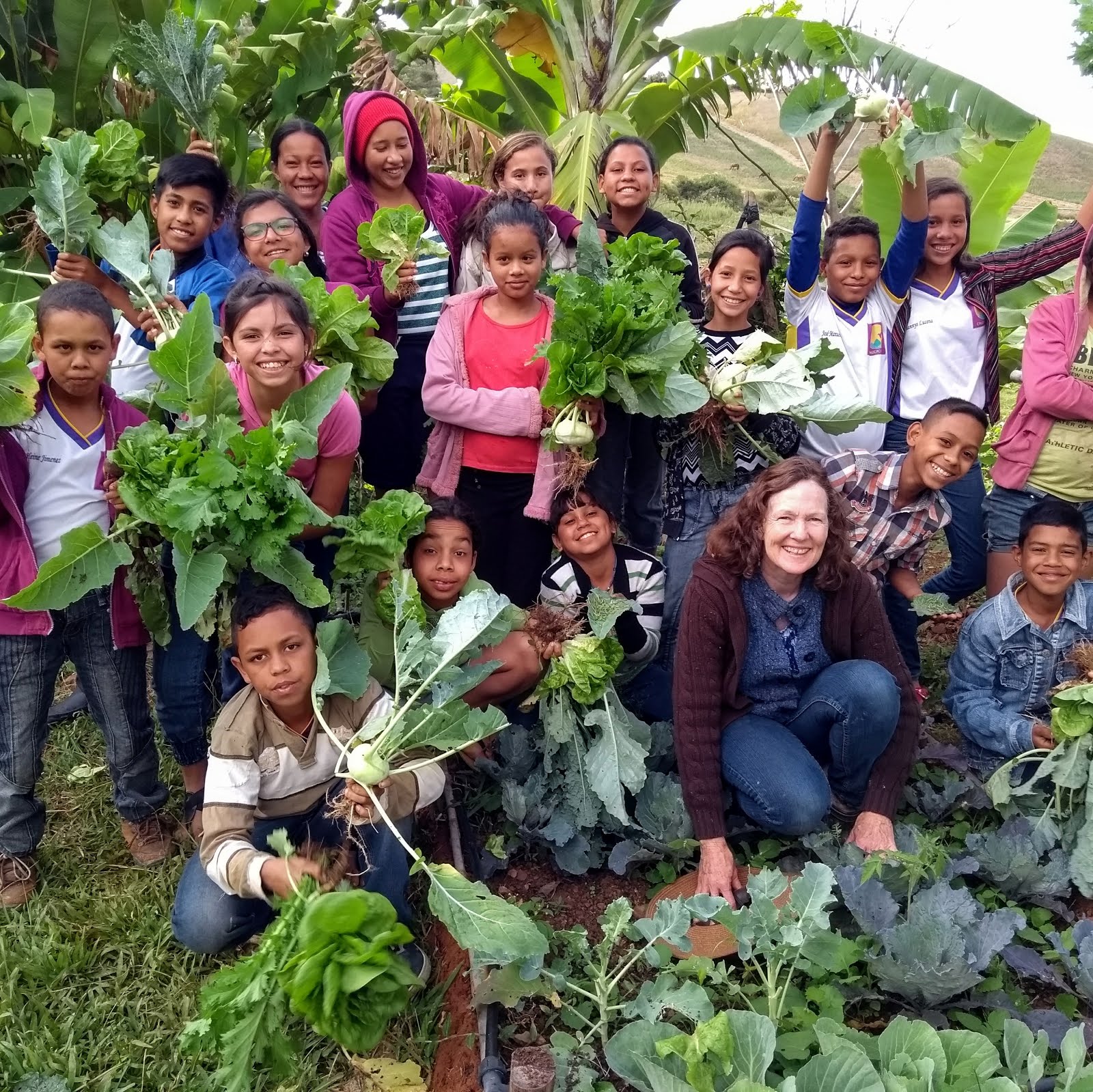
Lisa Sullivan with the kids from the Conuco Colibri Club, proudly showing off their harvested vegetables in August 2018.
Seven years ago I was planting yet another mango tree on my little farm in the foothills of Venezuela’s Andes mountains when my fellow tree planter — Fabi, age 8 — had a question for me: “Lisa, since it will be about five years until this tree gives its first mango, can’t we plant something we can eat a little faster?”
Fabi’s question was probably punctuated by the rumbling in her stomach. Food was disappearing off the shelves, and her mother Chichila, like others in the village, was spending hours, sometimes days, in line to purchase staples for her family of 10. Fabi’s dad rarely found work as a day laborer anymore in the large farmholder’s fields. Fertilizer for crops and gasoline for tractors were disappearing. Fabi’s yard held only their small house with the tiny remaining space taken by one lemon tree, a veritable pharmacy. No space to grow food.
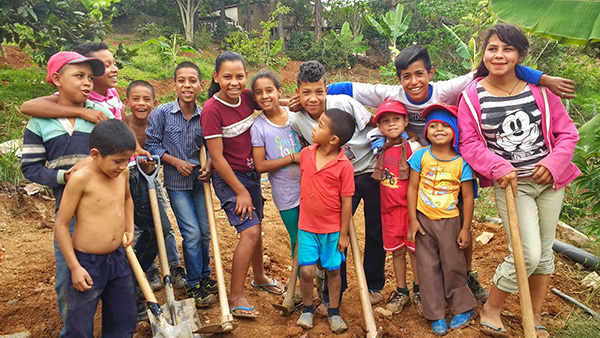
The kids are ready to dig in.
Little did we realize that afternoon that the terrible hunger crisis that would soon envelope Venezuela for the next five years was only just beginning.
But as we sat down in the shade of the merecure tree over coffee, we both knew Fabi had a great idea. My land had plenty of space. “Of course,” I told her, “come first thing in the morning.”
Just after dawn Fabi was at my gate bearing bamboo poles, a worn pickax, a few seeds in her pocket, and her cousin Jonjon. We worked until dusk, creating the first of raised beds, hauling dirt and compost and fell into an exhausted heap before bowls of caraotas on the wide veranda as evening fell. But looking to the side we realized that the hard-won vegetable bed was tiny compared to what was needed.
So the next day Fabi showed up with two of her siblings. The next, with five of her cousins. The following, with six of her classmates. Before we knew it, Conuco Colibri Club was born, with Fabi at the helm. We would spent the next two years filling tables with kale and squash, tomatoes and beans, friendship and fun, while gathering gratitude and respect from families and community.
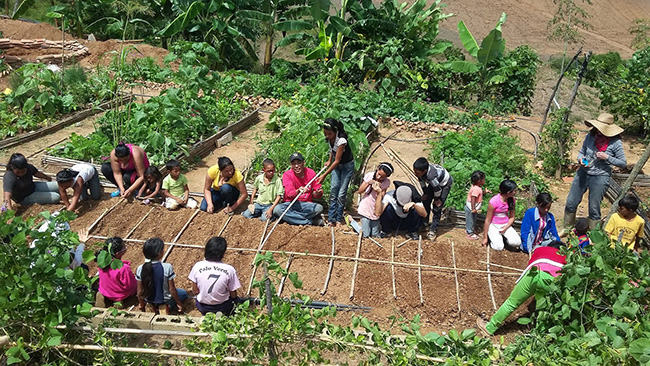
Preparing the seedbeds
But in our third year the crops dried up. The rains never came as scheduled and winds howled. Seeds were no longer found at stores. We began to explore our surrounding mountain countryside and saw how the handful of large landowners were diverting water from the community source to their monoculture fields. We visited the site of the village’s original indigenous community and realized how fertile the land was there from the thousands of trees they had planted. We began to ask neighbors to share just a few seeds from the sturdiest of their crops, and gathered dozens of kinds of seeds of native food crops that had for years been ignored.
And we started afresh. This time we planted, thinking about drought and wind and the shortage of purchased seeds. Instead of the one-time crop of caraotas — Venezuelans’ staple black beans — we planted native quinchoncho, a bean that takes nine instead of three months to grow, but yields multiple harvests. In between went banana plants for shade. We dug swales to hold water in the land. Passion fruit vines were planted at the base of the avocado, mango and orange trees. Instead of water-hungry potatoes, we put in sweet potato slips that thrived in even hostile terrain. We started raising chickens that gave us eggs and fertilized and tilled the land.
We were returning to the traditional Venezuelan style of farming — the conuco, today called agroecology or permaculture. And it worked. The following seasons we had more drought, more wind, and an abundant food forest bursting with delicious and nutritional crops.
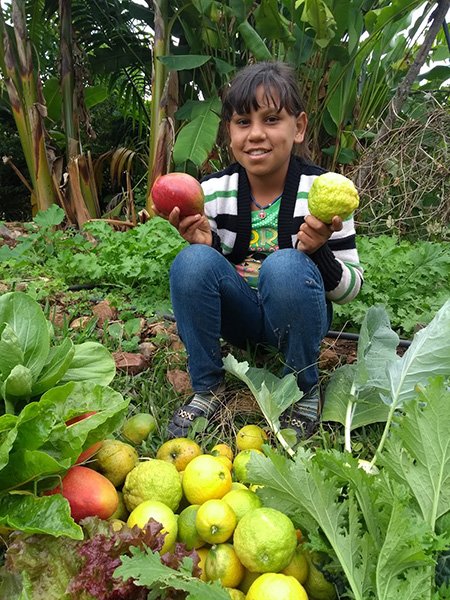
Fabi
This year the rains returned in force to our area, dumping unprecedented amounts of water onto our land. But our crops resisted, as the deep roots of trees we planted held the topsoil, preventing it from being swept away with erosion. We had found a formula to raise food in drought and rain.
But with the rains came the news that I would no longer be able to stay in Venezuela. The country where I had spent over three decades of my life raising my children, sharing seeds and song, books and hoes, hope and harvests with my neighbors had closed its doors to me. Or rather, those who controlled those doors had slammed them shut. Those within wept with me.
But as is often the case, a new door opened. I accepted the position of Faith, Economy and Ecology program director with Maryknoll Office for Global Concerns, an organization that had so many times helped me connect my local grassroots issues to larger world issues when I worked for 20 years as a Maryknoll lay missioner. I certainly wasn’t an expert on either the economy or the environment, but my work alongside the kids of Conuco Colibri Club had lit a fire under my feet. I felt the call to do what I could for this issue of our time, that of healing our ailing planet.
I had barely stepped into the role when Congress passed the largest climate bill in the history of the United States. I was humbled to join my brand-new colleagues, long-time climate justice advocates, in celebrating a bill that opens the door to clean energy in the U.S. and fulfills a commitment made at the 2015 Paris Agreement to try to keep our planet to 1.5C degree rise. Many of them had worked for decades to make this bill happen. It was an affirmation of what small steps and people power can accomplish.
Since then, I’ve felt that people power as I have participated in the ongoing African Climate Dialogues, a virtual event the Maryknoll Office for Global Concerns is helping to sponsor. These virtual meetings are bringing together farmers, teachers, environmentalists, community organizers from around Africa to share environmental problems in their regions and above all, raise up effective local solutions. These dialogues will be distilled and brought to the UN Climate Conference scheduled for November in Egypt.
As record rains, drought and wildfires are wreaking havoc not just on my little corner of the Venezuelan Andes, but throughout our planet, time is not on our side. I miss Venezuela and the kids of the Conuco Colibri Club, but I am glad to be able to connect their concerns and efforts to this larger struggle for a healthy planet. Maryknoll is uniquely poised to connect grassroots experience with important global conversations, and I am privileged to be part of that. Here’s to you, Fabi!

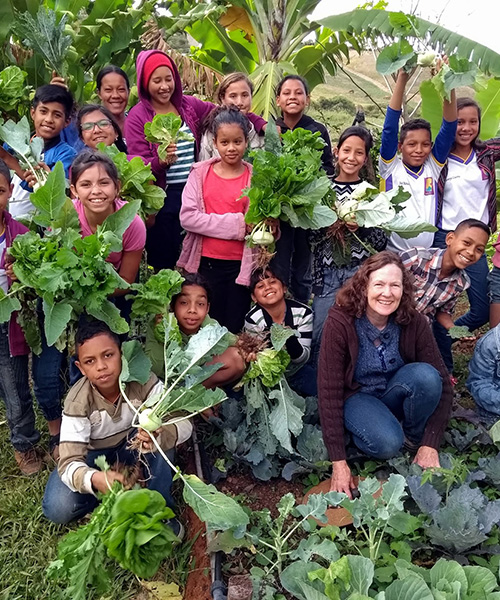

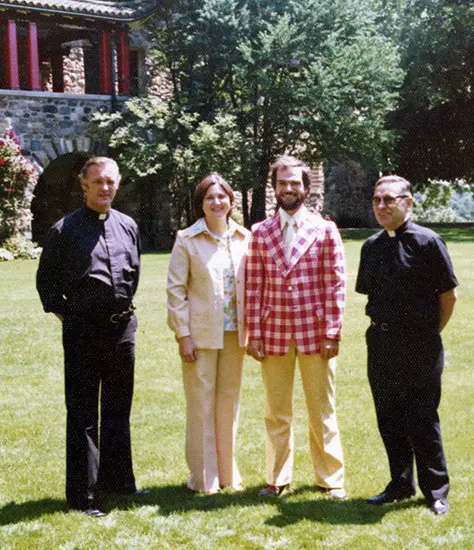
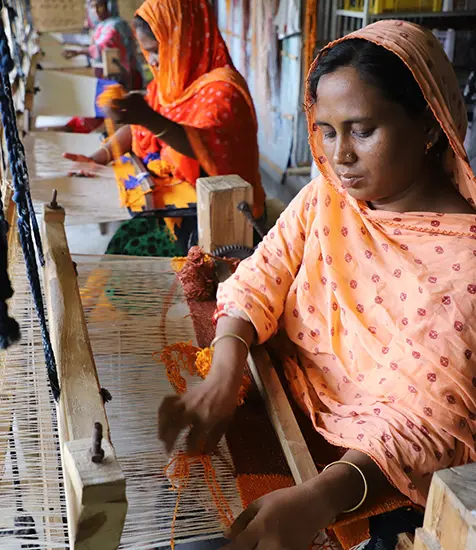
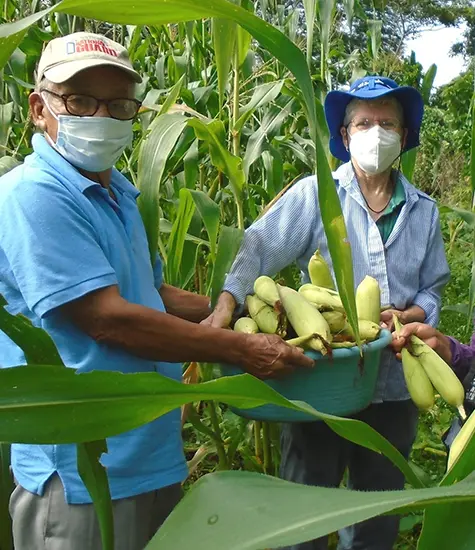




Congratulations Lisa! Maybe we will get to see you sometime in the near future. Your boundless energy and enthusiasm is amazing and inspiring. Best of luck to you with the new position.
Mary Kay Cohan
Congratulations Lisa !
Wishing you the best in this new endeavor- and abundant blessings to you and the family❤️
Congratulations, Lisa! While I am sorry to hear that you have had to leave your beloved Venezuela and the beautiful farm which brought so much nourishment and hope to your community, I am glad to know that you are able to share all that you’ve learned in new ways! Prayers and good wishes are with you!
Love, Rita
Congratulations to the Conuco Colibri Club on their successful farming and cooperation and to you, Lisa, in your new ministry! You must have so much to offer from your life in Venesuela. May you settle in well here. It must have been hard to part from all the wonderfull people who are a part of you.
Prayers for you all,
Johanna
Many prayers and much love Lisa!
That’s amazing am a Venezuelan myself. And I want to thank for what you did.